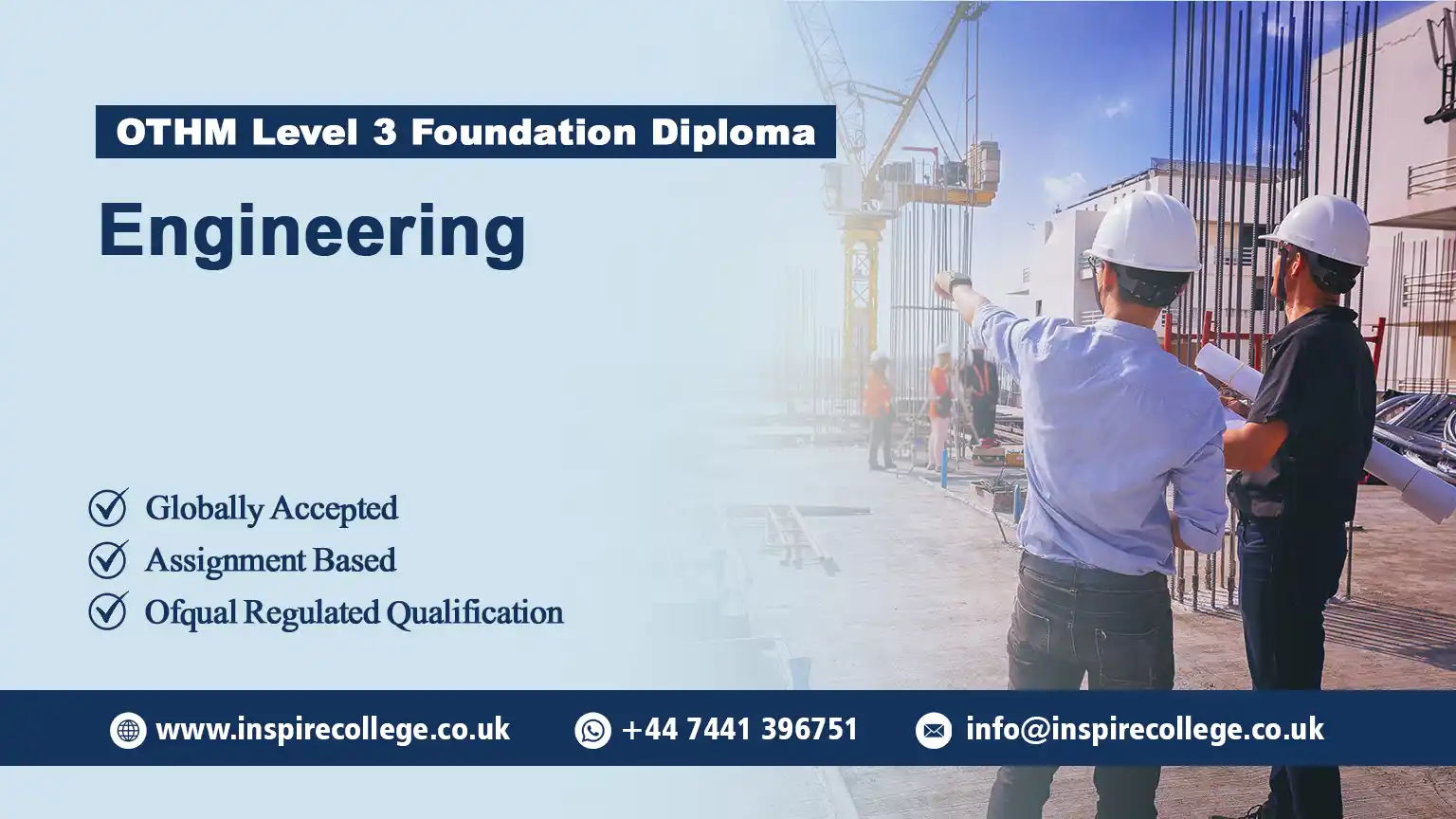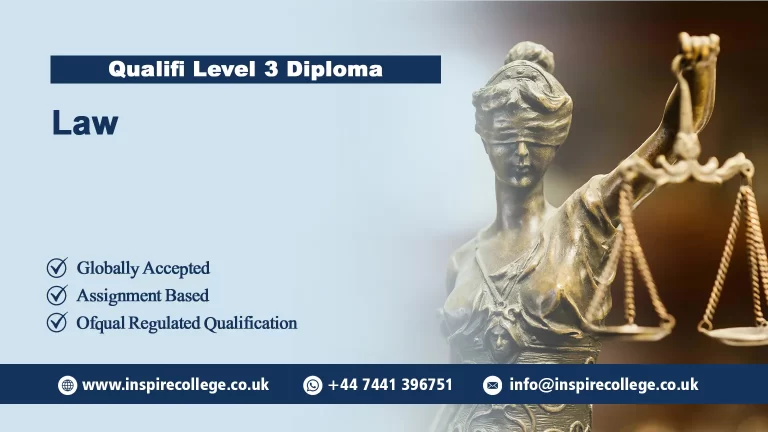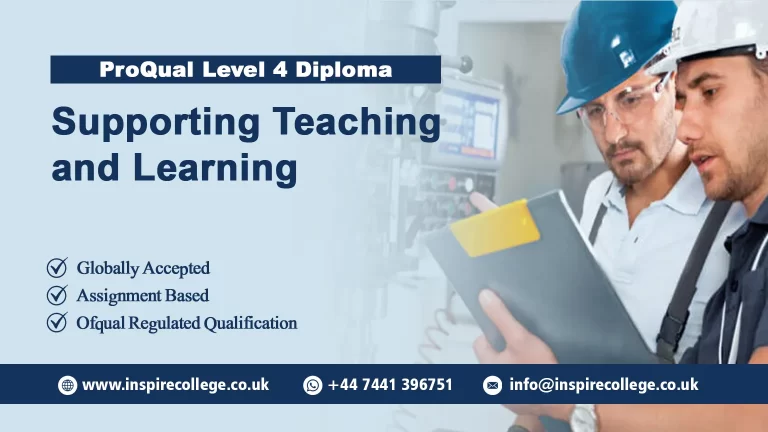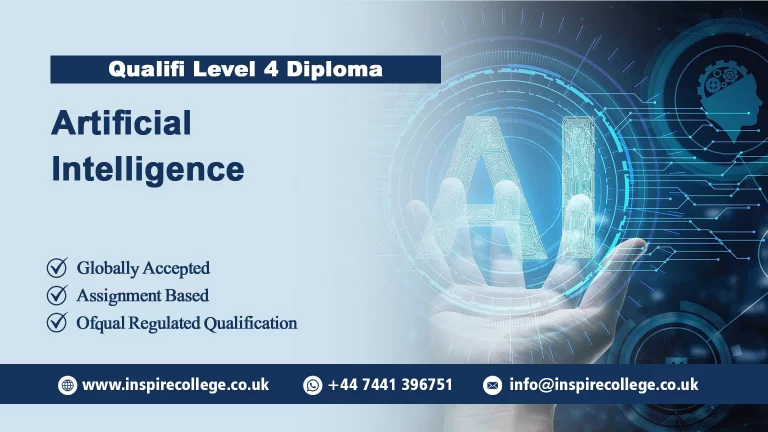
OTHM Level 3 Foundation Diploma in Engineering
Are you passionate about building, designing, and innovating? Are you ready to turn your fascination with how things work into a rewarding career in engineering? Look no further than the OTHM Level 3 Foundation Diploma in Engineering. This comprehensive qualification is your gateway to the exciting world of engineering, offering you the opportunity to gain valuable knowledge, skills, and experience to kickstart your engineering journey.
The OTHM Level 3 Foundation Diploma in Engineering is designed to provide you with a solid foundation in the principles and practices of engineering. Whether you’re interested in civil, mechanical, electrical, or electronic engineering, this diploma covers a wide range of topics essential for success in the field. From mathematics and physics to materials science and technical drawing, you’ll explore key concepts and theories that form the backbone of engineering.
One of the highlights of this diploma is its emphasis on practical learning. Through laboratory experiments, projects, and hands-on activities, you’ll have the opportunity to apply theoretical knowledge to real-world engineering problems. Whether you’re building structures, designing circuits, or analyzing materials, you’ll gain invaluable experience that will prepare you for the challenges of the engineering profession.
In addition to technical knowledge, the OTHM Level 3 Foundation Diploma in Engineering focuses on developing essential skills for success in the engineering industry. Critical thinking, problem-solving, teamwork, and communication are just some of the skills you’ll hone throughout the course. These skills are not only vital for tackling engineering challenges but also for collaborating effectively with colleagues and stakeholders in the workplace.
Upon successful completion of the diploma, you’ll be well-equipped to pursue further education in engineering at higher levels or seek entry-level positions in the engineering industry. Whether you choose to continue your studies at university or enter the workforce directly, the OTHM Level 3 Foundation Diploma in Engineering provides you with the foundation you need to succeed in your engineering career.
Are you ready to embark on an exciting journey into the world of engineering? The OTHM Level 3 Foundation Diploma in Engineering offers you the perfect opportunity to turn your passion for engineering into a fulfilling career. With its comprehensive curriculum, hands-on learning experience, and pathways to progression, this diploma sets you on the path to success in the dynamic and ever-evolving field of engineering. Don’t wait any longer – take the first step towards realizing your engineering dreams with the OTHM Level 3 Foundation Diploma.
The OTHM Level 3 qualifications are accessible to learners aged 16 and above. While specific entry requirements are not stipulated by OTHM, it is paramount that learners admitted to the program possess the requisite capabilities to engage effectively with the learning and assessment components.
Centers affiliated with OTHM are entrusted with the responsibility of enrolling learners with integrity onto suitable qualifications tailored to their needs. These qualifications are designed to foster learning, achievement, and progression in alignment with individual aspirations. Furthermore, the instruction and assessment for these qualifications are conducted in English.
For learners originating from non-majority English-speaking countries, providing evidence of English language competency is mandatory. This requirement ensures that all learners can effectively engage with the curriculum and successfully navigate their educational journey.
Mandatory Units
The OTHM Level 3 Foundation Diploma in Engineering consists of 6 mandatory units for a combined total of 60 credits, 600 hours Total Qualification Time (TQT) and 240 Guided Learning Hours (GLH) for the completed qualification.
Mandatory Units
Learning outcomes for OTHM Level 3 Foundation Diploma in Engineering
Engineering Principles
- Understand applications of SI units and measurement.
- Know how to perform engineering calculations
- Know how to interpret engineering information.
Design Technology
- Demonstrate knowledge and understanding of engineering products and design.
- Understand how to apply a systems approach to electrical design.
- Be able to produce 2D CAD drawings.
Electricity
- Understand the functions of basic electrical components within circuits
- Be able to apply AC and DC circuit theory to circuit design.
- Understand power supplies and power system protection
Mechanics
- Understand the motion of objects in mathematical terms.
- Understand energy changes in a system.
- Understand energy transfer, forces and elasticity.
Introducing Statistics
- Understand the underpinning concepts relating to the analysis of statistics.
- Understand a range of data types and their representation.
- Be able to calculate and interpret statistical diagrams and measures.
Mathematics
- Understand the application of algebra relevant to engineering problems.
- Be able to use geometry and graphs in the context of engineering problems.
- Understand exponentials, logarithms and trigonometry related to engineering problems.
- Understand calculus relevant to engineering problems
This course is meticulously crafted to cater to a diverse audience, making it suitable for individuals at different stages of their educational and professional journey in the field of engineering. Here’s a breakdown of who can benefit from the OTHM Level 3 Foundation Diploma in Engineering:
- Secondary School Graduates: For students who have recently completed their secondary education and are considering a career in engineering, this diploma serves as an ideal starting point. It provides a comprehensive introduction to the fundamental principles and practices of engineering, laying a solid foundation for further study or entry into the workforce.
- Aspiring Engineers: Individuals with a keen interest in engineering but lacking formal qualifications or experience will find this course invaluable. It offers an opportunity to explore various branches of engineering, including civil, mechanical, electrical, and electronic engineering, and discover which area aligns best with their interests and career goals.
- Career Changers: For professionals looking to transition into the field of engineering from other industries, this diploma offers a pathway for career advancement. Whether you’re coming from a technical background or entirely unrelated field, the course provides essential knowledge and skills to make a successful transition into engineering roles.
- Engineering Technicians: Technicians already working in engineering-related roles can benefit from formal education to enhance their skills and advance their careers. This diploma provides a structured curriculum covering key engineering principles and practices, complementing the practical experience gained on the job.
- International Students: The OTHM Level 3 Foundation Diploma in Engineering is also suitable for international students seeking to pursue higher education in engineering in English-speaking countries. It helps them meet the entry requirements for undergraduate engineering programs by providing a solid academic foundation and demonstrating proficiency in English.
Overall, this course caters to a wide range of individuals interested in engineering, offering them the opportunity to acquire essential knowledge, skills, and qualifications to succeed in the dynamic and rewarding field of engineering.
Future Progression
Upon successful completion of the OTHM Level 3 Foundation Diploma in Engineering, learners are presented with diverse pathways for both professional advancement in the workplace and academic progression to a multitude of OTHM Level 4 diplomas.
Register Now
FAQs for OTHM Level 3 Foundation Diploma in Engineering






